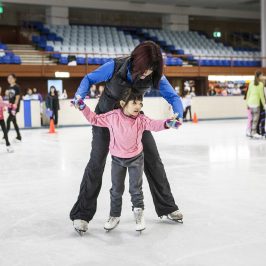by Kate Sawtschuk, RDM editor
You’ve just returned home from having coffee with a friend (or from a movie/walk/swim/ manicure/shopping trip).
You walk through the door with an unusual lightness in your step that comes from having had some much-needed time to yourself.
You feel a rush of love and contentment as your gorgeous kids bound towards you, so happy to see you.
And then.
The bombardment of demands begins. “Where is the sticky tape and he’s annoying me and why have we run out of paper and where is that thingy I need for school and I need a snack and what’s for dinner and I MUUUUUUMMMM CAN’T FIND THE GLITTER AND I NEED IT RIGHT NOW!”
It doesn’t take long before feelings of stress and being overwhelmed at the thought of tending to everyone’s emotional and practical needs flood back.
But it’s all ok, because we’ve practiced self-care, right?
The “mental load”, carried predominantly by mothers as the “knower of all the things”, it is not a solution to mother burnout may be lightened temporarily by stealing some time for yourself, but it is not a solution to mother burnout.
“Self-care” has become an overused buzzword in the endless stream of advice mothers are offered these days. Conveniently for society, it shifts the responsibility solely to mothers to recharge themselves and masks the reality of many mothers’ lives.
When we can’t manage the often truly impossible feat of carving out some time to care for ourselves, we are at fault for our apparent unwillingness to solve our problems.
Meditate, journal, pamper yourself and exercise, in other words, get a life, the well-meaning say.
It turns into just another thing we need to add to our long mental lists of things to do. And we often don’t even get the satisfaction of ticking it off the list!
We are also encouraged to model self-care and told that it makes us a “better mum”. Hmmm, thanks for the extra pressure.
If we can’t make self-care happen, we are told that we are being martyrs. Trying to be a “supermum” or, my personal favourite, “letting ourselves go.”
Feeling burnt out, isolated or depleted is not a result of not practising self-care. It’s not that we’re doing it wrong. It’s just that hard.
The invisibility of mothers’ lives makes it all harder. It makes us feel disconnected and undervalued. And the village that once existed is no longer there to support us.
I would like to see the complexity of the demands mothers face reflected in popular culture. For it to be seen as relevant and valuable when we speak of our lives and motherhood. For fathers to be seen as caring for their children instead of “helping out” or “babysitting”. For looking after children to be shared and facilitated by all and not taken for granted as something exclusively done by some.
These may be steps toward looking after mothers instead of telling them to do it themselves.
At the end of the day, we have enough people to look after!














